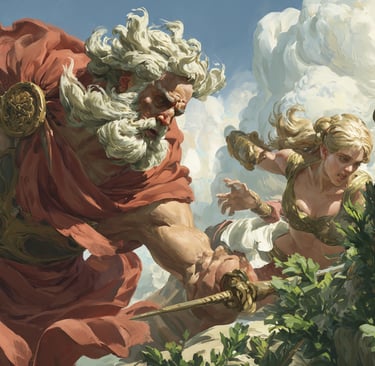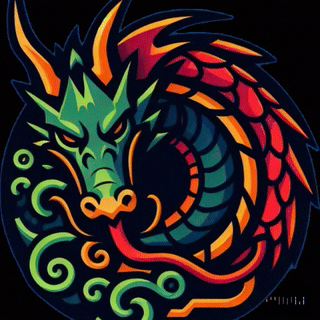Introduction to Roman Mythology
Roman mythology stands as one of history's most influential collections of sacred stories, divine legends, and heroic tales. For over a millennium, these myths shaped the beliefs, values, and imagination of one of the world's greatest civilizations, leaving an indelible mark on Western culture that persists to this day.
What is Roman Mythology?
Roman mythology encompasses the body of traditional stories, beliefs, and religious practices of ancient Rome. These myths served multiple purposes: they explained natural phenomena, justified social customs, legitimized political power, and provided moral guidance to Roman citizens. Unlike purely fictional stories, Roman myths were living beliefs that influenced daily life, from household rituals to state ceremonies.
The Roman pantheon featured a complex hierarchy of gods, goddesses, spirits, and heroes, each governing different aspects of human experience and the natural world. Jupiter ruled the heavens, Mars governed warfare, Venus presided over love and beauty, while countless minor deities watched over homes, crossroads, and agricultural cycles.
The Roman Approach to Divine Stories
What sets Roman mythology apart from other ancient traditions is its distinctly practical character. Romans were pragmatists who viewed their gods as partners in building and maintaining their civilization. Their myths often focus on duty, honor, sacrifice, and the collective good rather than individual heroism or divine caprice.
Roman storytellers frequently emphasized the pax deorum - the peace of the gods - a concept suggesting that proper worship and moral behavior would ensure divine favor for Rome. This transactional relationship between mortals and immortals permeated Roman religious thought and influenced how their myths developed over time.
Origins and Evolution
Roman mythology didn't emerge in a vacuum. The earliest Roman religious practices grew from the agricultural traditions of central Italian tribes, featuring earth spirits, household gods, and deities of fertility and harvest. As Rome expanded, its mythology absorbed influences from:
Etruscan civilization: Contributing sophisticated divination practices and architectural temple designs
Greek culture: Providing elaborate mythological narratives and anthropomorphic god concepts
Eastern mystery cults: Adding personal salvation themes and exotic rituals
Celtic and Germanic traditions: Influencing frontier religious practices
This synthetic approach created a uniquely Roman mythological system that honored tradition while adapting to new circumstances.
Myth as Historical Foundation
Romans viewed their myths not as fantasy but as authentic history. The story of Aeneas fleeing Troy to found a new homeland wasn't seen as allegory but as literal family history for noble Roman houses. Romulus and Remus weren't symbolic figures but actual founders whose descendants walked Roman streets.
This historical consciousness gave Roman mythology its political dimension. Myths justified Roman expansion (they were destined to rule), explained social hierarchies (the gods ordained class distinctions), and motivated civic duty (ancestors died for Rome's glory).
Sacred and Secular Intertwined
In Roman society, mythology permeated both religious worship and secular culture. The same stories that priests recited in temples appeared in:
Epic poems like Virgil's Aeneid
Historical writings by Livy and Tacitus
Decorative art in homes and public buildings
Theater performances and gladiatorial games
Legal precedents and political speeches
This integration meant that Roman myths functioned as shared cultural knowledge, creating common reference points for citizens across the empire's vast territories.
Why Study Roman Mythology Today?
Understanding Roman mythology provides insight into the civilization that gave us representative government, codified law, urban planning, and literary forms still used today. These stories reveal Roman values, fears, and aspirations while illuminating the religious mindset that guided their remarkable achievements.
Moreover, Roman mythological themes continue to resonate in modern literature, art, psychology, and popular culture. From Shakespeare's plays to Marvel movies, from Freudian psychology to NASA mission names, Roman mythological concepts remain vibrant parts of contemporary discourse.
What You'll Discover
This guide will take you through the rich tapestry of Roman mythological tradition, exploring not just the stories themselves but their cultural context and lasting significance. You'll meet the major gods and goddesses, follow legendary heroes on their quests, understand religious practices and festivals, and trace how these ancient beliefs evolved over time.
Whether you're a student, educator, writer, or simply someone fascinated by human storytelling traditions, Roman mythology offers profound insights into how ancient people understood their world and their place within it. These stories speak to universal human experiences while revealing the particular genius of Roman civilization.
Prepare to enter a world where gods walked among mortals, where duty to family and state superseded personal desire, and where the fate of the greatest empire in human history hung on divine favor and human virtue.


480-366-3550 (Domain Sales)
© SDBEST LLC, 2025. All rights reserved.
Sponsorship Disclosure
Terms of Service
